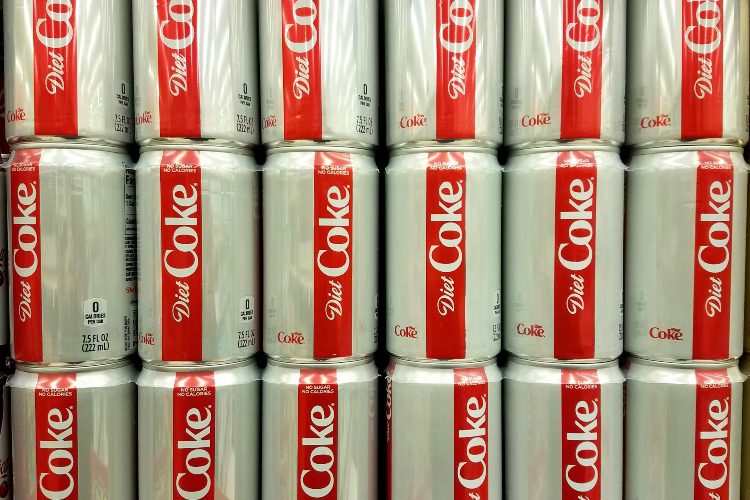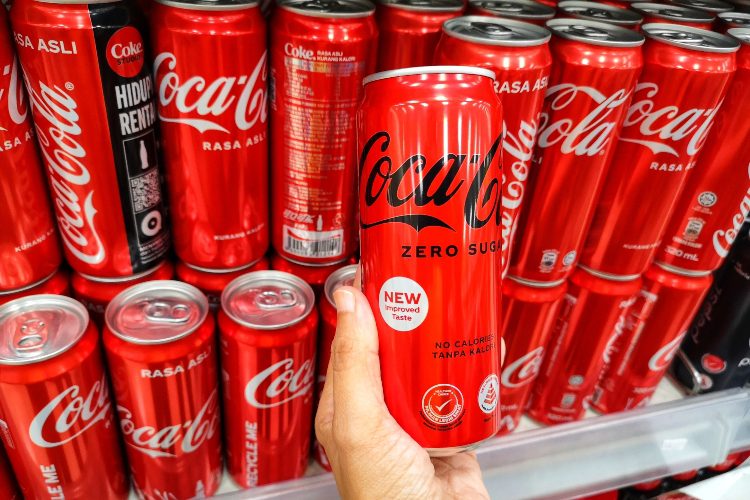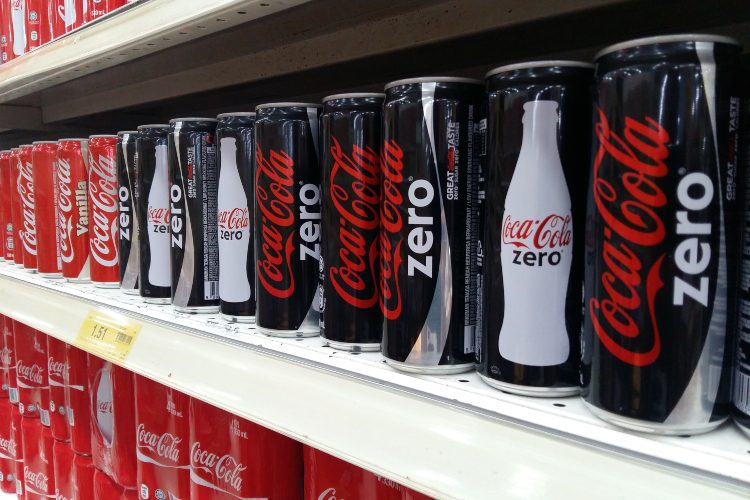
Khairil Azhar Junos/Shutterstock
Have you noticed one of the most significant changes in the soda world: more and more soda companies are moving away from the word "diet." While what's in the can remains the same, the companies have started using terminology like "sugar-free" and "zero sugar." Why? Read on to find out...
Soda Companies Find New Strategy

Zety Akhzar/Shutterstock
It's hard to think of a world without diet soda. After all, diet soda has remained a staple of grocery store aisles and gas station coolers since the late '80s. Now, while the product itself might not be changing, the branding of diet soda is going through a total transformation. You see, most major soda companies have started moving away from the word "diet," in favor of phrases like "zero sugar" and "sugar-free." The reason? Well, younger generations have started to move away from diets and dieting mentality, instead choosing to focus on overall bodily health.
According to a recent study from Mintel, a market research company, sugar-free soft drinks are soaring in popularity. In fact, the business made more than $11.2 billion in 2020. That's right! That's a nearly 20% increase from 2018, versus sugary soda, which only grew 9% in the last few years. While the full-sugar versions of soda still sell better overall, its market is simply not growing as quickly. Now, with the name change, the soda companies hope that younger soda drinks will help to continue to boost the zero-calorie soda market...
Diet – Stigma-Filled Word

Khairil Azhar Junos/Shutterstock
According to Kelly Goldsmith, a marketing professor at Vanderbilt University, the change in nomenclature has really helped zero sugar soda sales. "They still want what's in the can. They just want you to call it something different," explained Goldsmith. "So, for a lot of these cola companies that produce zero-calorie product, zero-sugar product, we may see them calling them just that, when in actuality, it's still a diet product that's in the can, the way that we knew it from before."
However, while appealing to younger soda drinks will undoubtedly help diet or low-calorie product sales, Goldsmith also says that the companies should remain mindful of their older, longtime customers. "When you get customers that consume that much of a brand and that much of a product, they really see it as a part of their core identity, and it's really hard when you shake that for consumers when they can no longer find that product that they really folded into their lives," the marketing professor explained.
Can soda companies appeal to both younger and older audiences at once? Well, yes - at least, according to Goldsmith! She says that soda companies should focus on new, but smaller and more niche, marketing strategies for younger soda drinks who want something new, while keeping the original products for longtime diet soda drinks. Will the companies follow her advice? Only time will tell!
Sources: The Takeout, WTVR



